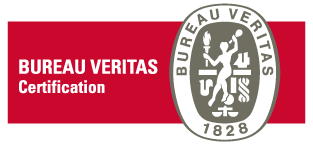Tabla de contenidos
Toggle
This accounting method frequently uses Cash as an accounting entry, increasing when you receive income. It does not, however, use account titles such as Prepaid Assessments or Assessments Receivable. Again, this is due to the nature of the method wherein you only report income once you receive cash. Using this method, the association records expenses when it incurs them, not when it pays them. As the HOA settles its balances, the association reduces its Accounts Payable and Cash balance.
How Does Integrated Accounting Software Differ from Standalone Options?
Choosing hoa accounting which technology platform the organization will use is part of this upgrade process. Without records and visibility, a board is limited in its effectiveness. Unfortunately, this is often the default, with many HOA boards held back by manual processes and non-industry-specific software.
Managing HOA Accounts Payable and Receivable
Doing this ensures that all the information will be completed in a timely manner. It also removes the need to take time out of community volunteers’ busy schedules. HOA accounting https://www.bookstime.com/ is probably one of the most complex, and most important, responsibilities of the association board. Preparing financial reports on a regular basis is important for many reasons.
How many units are in your community?

Our remote management system is a hybrid solution of self-management and having third party support. While our virtual services do not provide onsite meeting attendance, inspections, or maintenance, we do provide full accounting and administrative support. Compared to local management companies, CSM is able to help boards reduce their costs while maintaining control of their community without sacrificing the quality of life for their homeowners.
- As an HOA board member, it is important to have an understanding of the three methods that are used, their effects on financial reporting, and the advantages/disadvantages of each method to your HOA.
- Equipped with this know-how, you’ll be ready to set up your association with a sound financial foundation, set expectations with HOA boards, and be prepared for any surprise expenses that could pop up down the road.
- An organized accounting system helps ensure compliance and avoids penalties.
- Proper financial reporting is the best way to track the community’s spending, maintain a balanced budget, and ensure Generally Accepted Accounting Principles (GAAP) are followed.
- Using the Cash Basis of Accounting, you record income and expenses when money changes hands.

One of the most essential tasks for any HOA is creating a sustainable, realistic budget. Our HOA budget preparation services in Colorado provide the tools and expertise needed to allocate funds efficiently, ensuring that you’re financially prepared for both routine expenses and long-term projects. ACCU’s approach focuses on making your financial future as predictable and stable as possible. At ACCU, Inc., we’ve been providing HOA consulting and accounting services to Colorado communities for over 40 years. As a trusted partner to HOAs in the Denver metro area, we understand that each association is unique.

HOAs often allocate an average of 5% to 10% of their budget for professional accounting software, showcasing the importance of technology in maintaining accurate and efficient financial records. An income statement is essential for budgeting and planning future expenditures. It includes revenues (such as homeowner dues and fees) and expenses (such as maintenance costs and management fees). The difference between total revenues and total expenses indicates the net income or loss for the period. On average, HOA management companies charge a monthly fee ranging from $300 to $1,000 for accounting services, depending on the size and complexity of the accounts payable by the association.

Essential Financial Statements For HOAs
In some states, it is a legal requirement for HOAs to maintain and submit regular financial statements. It is a good idea to keep detailed records anyways as they will be extremely beneficial for all other aspects of homeowner’s association management. Timely reports also help them effectively allocate funds for projects and maintenance.
Large HOAs or professionally managed associations
These laws cover everything from accurate record-keeping to transparent reporting and timely assessments. Non-compliance can lead to legal ramifications, including fines or even the dissolution of the HOA. In addition to the assets = liabilities + equity legal risks, non-compliance can also damage the HOA’s reputation and erode trust within the community.

